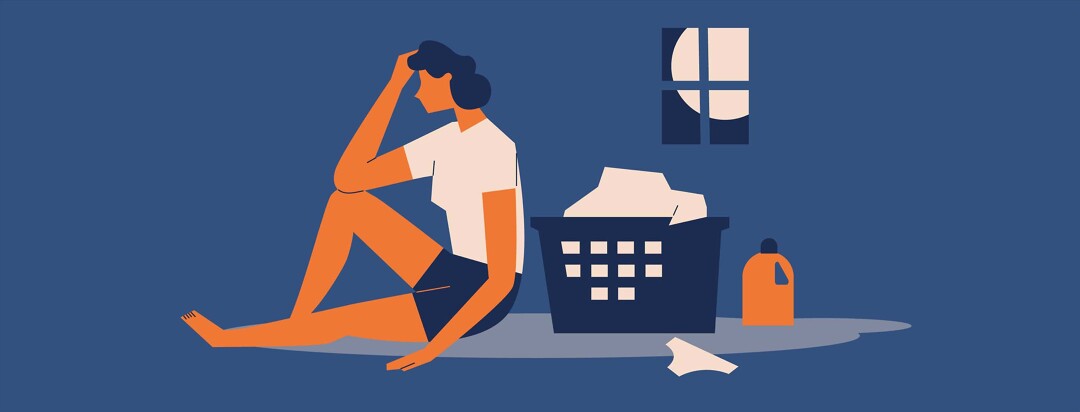Dealing With Incontinence and IBD
Accidents. Incontinence. Call it what you will. To be in your 20s and experiencing fecal incontinence is soul-destroying. I’m not saying it’s any less soul-destroying later or earlier in life. It’s just that my personal experience did have me crying, "How can this be my life in my 20s?"
Fecal incontience with Crohn's or UC
Fortunately for me, it was mainly nighttime incontinence. Doesn’t make me sound that fortunate, does it? But, it is easier to deal with at home than it is away from it. There have been periods of my life in which I have had to leave the house with a bag full of emergency underwear, leggings, wipes, etc. I wouldn’t dare leave otherwise, because, what if...? In reality, sh***ing my pants whilst out and about was a rare occurrence, but it’s better to be safe than sorry!
Staying away from home also seems impossible when you know there’s a risk of pooping in the bed! My first stoma was a nightmare, and I often woke up to a bag explosion. The cycle of ostomy leaks, burnt skin, and bags not adhering properly was literally my life for 2 years. Then came the nighttime incontinence with my j-pouch.
Nightime accidents with a j-pouch
It started after I had my j-pouch connected back up. I’d had surgery to remove an abscess and twisted intestine, and my j-pouch was torn during the operation. It was mended and left to heal, before being connected back up. I had an ileostomy for just 5 months, and then it was reconnected again. I was surprised when I realised that this was a completely different experience from when I’d had it connected the first time.
When I had my j-pouch connected the first time, I was anticipating the worst. I’d read what I could about it, and expected the initial few months to be full of the frequent and urgent need to empty my pouch. Possibly even some incontinence. But, nothing. It worked really well, straight away! I didn’t get that much warning, but the time I could hold it increased pretty quickly.
So, imagine my surprise when I had it connected for the second time and had only a few seconds warning. I didn’t reach the bathroom on multiple occasions in the early days following surgery. Things did improve, but the nighttime incontinence remained.
Coping with incontinence in bed
I tried sleeping on an incontinence pad, but whatever they were made from made me sweaty. So I started sleeping on a towel. That meant that I didn’t have to get up and change the bed in the middle of the night, as well as having to get up and clean myself up. I just chucked my messed underwear and towel in the washing machine and put a new one on the bed.
I couldn’t believe this was my life. I didn’t want my partner to stay over. He knew about my issue and said he didn’t care. He’d happily help me in the night if needed, but I didn’t want that.
Can you help, doc?
I was referred for something called biofeedback, but it wasn’t my local hospital so it meant relying on someone to be able to take me to the appointments because I don’t drive. I arrived at the first appointment full of hope. I was told to go home, complete a food diary, and come back next month. I explained that I’d had IBD for many years and if there was a food to be identified, I’d have done so already. I was so annoyed. I’d made my dad drive me for an hour, for a 5-minute appointment... I was supposed to get an hour! She gave me a sheet with a few pelvic floor exercises on it, because I asked for them, and sent me on my way.
This is how non-adherence happens. I was so disappointed and angry, I didn’t go again. I felt like the doctor wasn’t going to listen to me, and if she wasn’t going to listen, I wasn’t going make the effort and disrupt others' lives to take me all that way.
Returning to life with a stoma has had many advantages. Not waking up in my own feces is definitely one of them! Bag leaks are very rare for me with this stoma. I’ve shared this today for one simple reason. So that anyone going through something similar at least knows they’re not alone.

Join the conversation